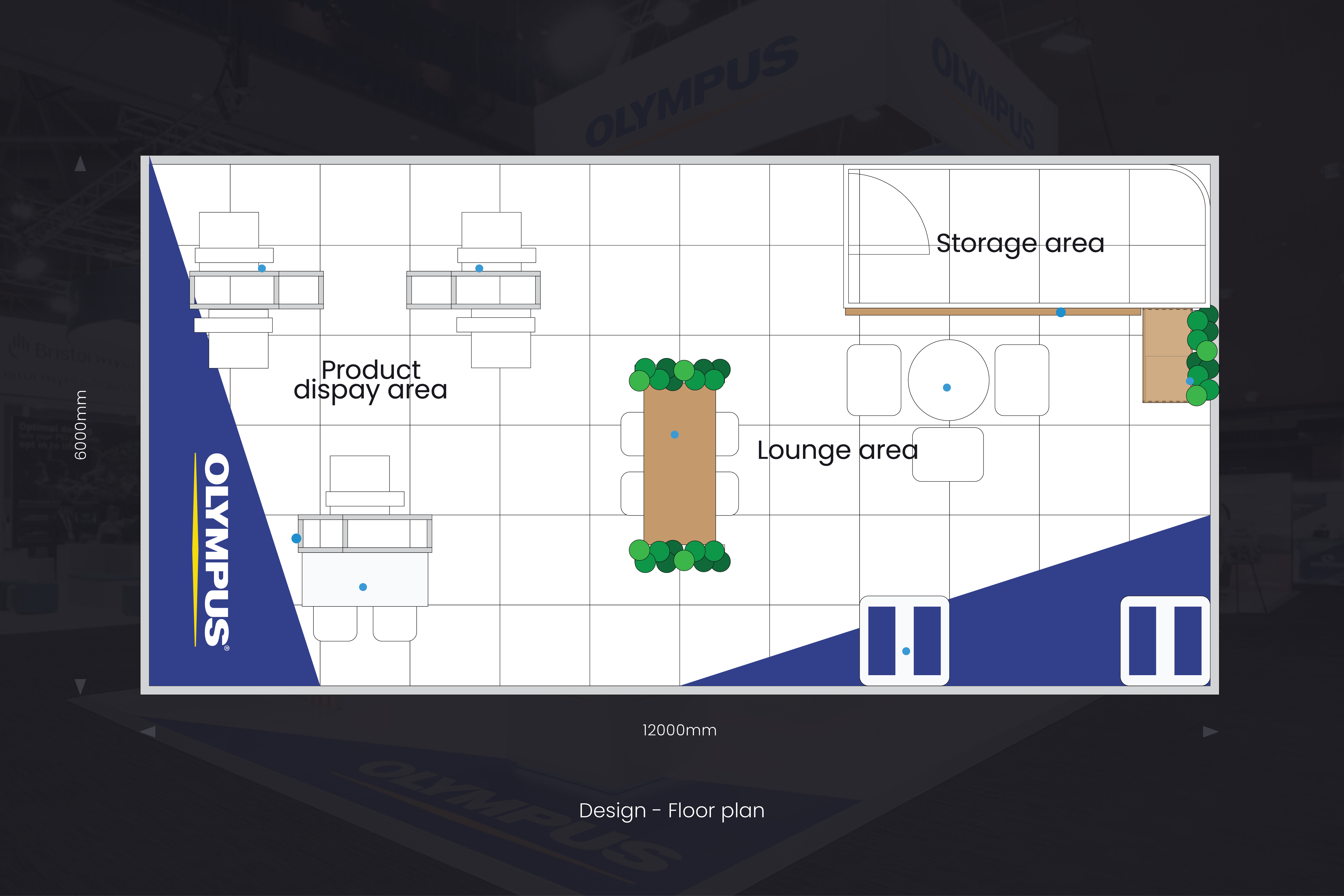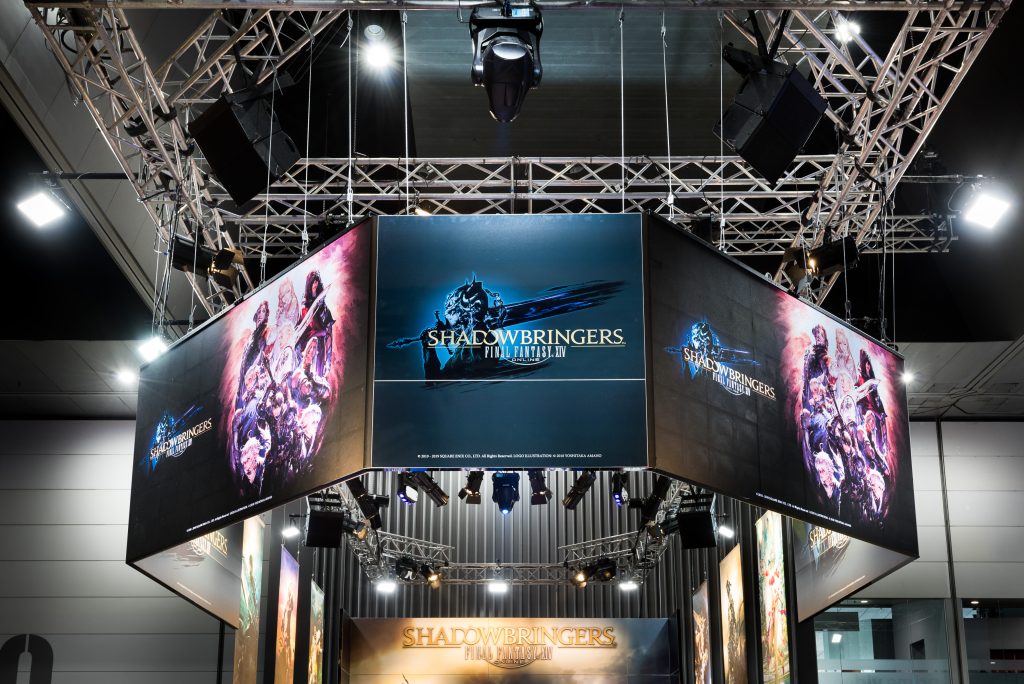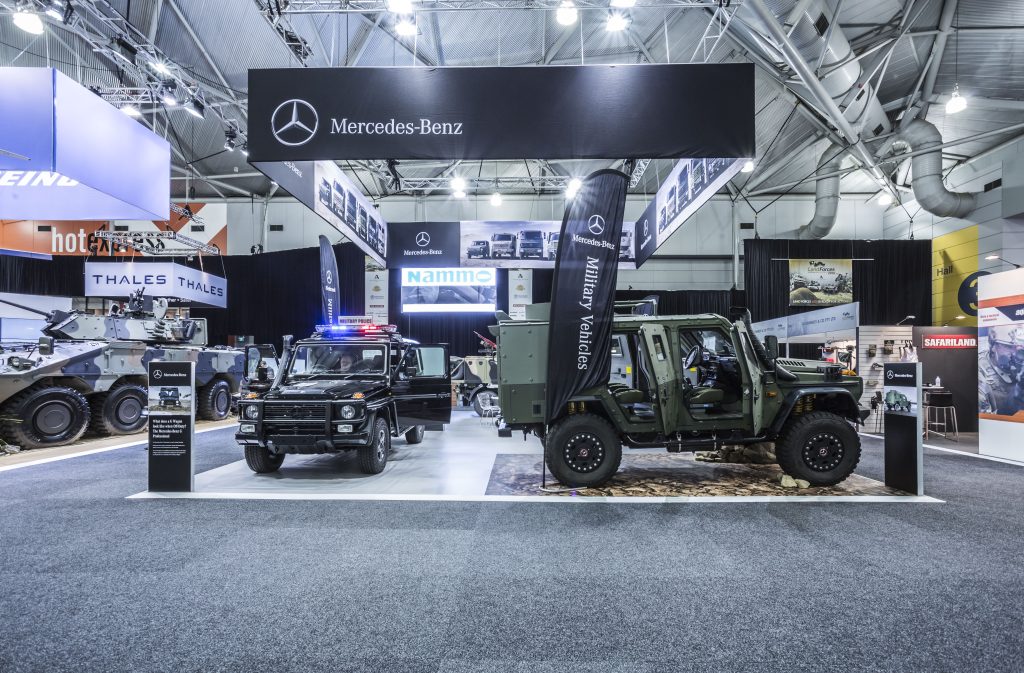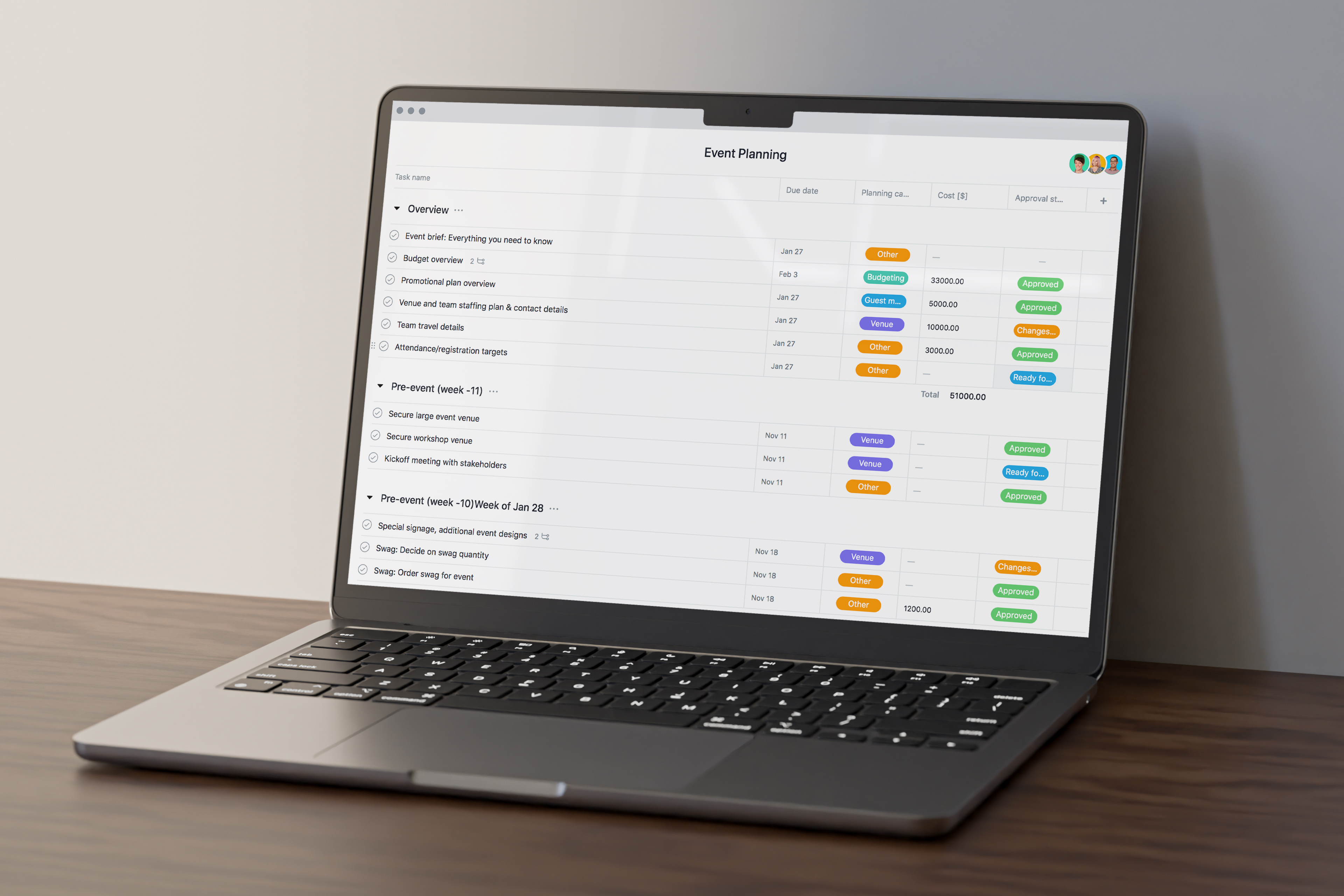Event planning is simply a management of numerous elements – venue, booth design, marketing, attendees. All of these must come together perfectly for your brand event to be a success. So whether you’re planning to participate at a trade show or a corporate event, this article will provide you with an ultimate event planning checklist.
Key Takeaways
- Event planning checklists are essential for successful event management and should include budgeting, venue selection, logistics & marketing components.
- Customise your checklist according to objectives & target audience. Set key milestones 6-12 months prior and finalise details 1-2 months before the event.
- Utilise tools such as Gantt charts or project management apps to effectively plan events with contingency plans in case of emergencies.
The Importance of an Event Planning Checklist
An event planning checklist is an indispensable tool for ensuring the seamless execution of any event. This comprehensive list serves as a roadmap for any organiser, helping them stay organised and on track throughout the entire planning process. From budgeting and venue selection to catering, logistics, and promotional activities, a well-structured checklist ensures that no crucial detail is overlooked.

By following a systematic checklist, you can mitigate the risk of oversights, streamline coordination among team members, and ultimately deliver a flawless event experience. When done well, executing an event will create a positive and memorable experience for attendees, helping the brand reach its goals and boost its overall image.
Essential Components of an Event Planning Checklist
An effective event planning checklist encompasses a range of essential components to ensure a successful and well-coordinated event. Here are key elements that should be included:
Budgeting and Financial Management
Crafting this budget begins by making note of all possible costs including but not limited to: venue, decorating and event booth details, AV equipment rentals, catering arrangements, organising activities during the event itself as well as marketing materials distributed before it. Staffing needs must be accounted for as well. You should estimate values based on comparable happenings or local market conditions. Finally, contracts with providers and suppliers should be locked down before the actual day arrives.
Venue Selection and Logistics
Begin by selecting a venue that aligns with the target audience and offers enough space for exhibitors and attendees. Conduct thorough site visits to assess the layout and identify potential challenges. Negotiate vendor contracts to ensure they cover essential services such as Wi-Fi, electricity, and booth setups. Develop a detailed floor plan to optimise traffic flow and designate specific areas for registration, networking, and presentations.
You can work with service providers like Expo Centric for your event booth design & setup and other logistical concerns.


Additionally, make sure to establish clear communication channels with exhibitors and vendors, providing them with comprehensive logistical information well in advance. By prioritising these location and logistics considerations, you can enhance the overall efficiency and success of the trade show, ultimately garnering positive feedback and ensuring a seamless experience for everyone involved.
Marketing and Promotion
Start by leveraging social media platforms to build anticipation and engagement, using targeted campaigns to reach the desired audience. If it’s within your budget, you can also collaborate with industry influencers, trade publications, and relevant blogs to amplify the event’s reach.
Also, don’t forget to utilise email marketing to keep potential attendees informed about updates, exclusive offers, and highlights. Design eye-catching promotional materials such as banners, flyers, and social media visuals to convey key event details. By integrating these tactics, you can effectively boost your booth’s visibility, attract a diverse audience, and create a buzz that extends far beyond the event dates to ensure maximum impact and success.


Customising Your Event Planning Checklist
Determine Event Objectives
Event objectives form the basis for any successful event planning process. These will provide direction and focus, serving as a benchmark to measure success against. Whether you’re organising an official gathering or nuptials, these plans must be set first to make progress on your journey.
When crafting corporate events specifically, there are several steps one should take into consideration such as specifying a purpose of the occasion while having SMART goals which consider all factors related to their desired target audience so tangible results can be achieved by its completion date.
Identify Target Audience
Understanding the target audience is crucial as it enables your company to tailor the event’s content, promotions, and overall experience to resonate with the specific needs and expectations of your desired demographic.

To pinpoint the right audience, you should conduct thorough market research, analysing industry trends, competitor events, and attendee demographics. Also try to utilise online surveys, social media analytics, and industry databases so you can get your hands on valuable insights into the preferences and interests of potential participants. This targeted approach not only increases the likelihood of attracting the right attendees but also enhances the overall relevance and success of the trade show, fostering meaningful connections, and ensuring a positive brand association within the identified market segment.
Set Key Milestones
Establishing clear KPIs is vital as it provides a tangible framework for assessing the event’s impact, demonstrating ROI to stakeholders, and guiding strategic decisions for subsequent trade shows. To effectively identify and set Key Performance Indicators (KPIs) for a trade show, you must align your event goals with measurable objectives. Start by defining the event’s primary purpose, whether it’s lead generation, brand awareness, or networking. Subsequently, establish specific, quantifiable KPIs such as the number of leads generated, attendee engagement metrics, social media reach, or exhibitor satisfaction scores.
You should also consider past event performance and industry benchmarks to set realistic targets. Regularly monitor and analyse these KPIs during and after the trade show to evaluate success and identify areas for improvement in future events.
Pre-Event Planning: What to Do Before the Big Day
Initial Planning (6-12 Months Prior)
Creating a strong foundation for an event is the initial planning stage. Here, you will outline your budget, pick the venue, and devise a marketing plan, all these components form the basis of any event.
- Define Event Objectives: Clearly outline the goals and purpose of the event.
- Create Budget: Develop a detailed budget, including estimates for venue, catering, entertainment, and promotional activities.
- Select Venue: Research and secure a suitable venue that aligns with the event’s theme and accommodates the expected number of attendees.
- Vendor Selection: Begin identifying and reaching out to potential vendors for booth design and setup, catering, audio-visual services, and other event necessities.
- Event Date Confirmation: Confirm the event date and secure any necessary permits or licenses.
- Finalise Contracts: Complete negotiations and finalise contracts with vendors, ensuring all services and deliverables are clearly defined.
- Develop Event Timeline: Create a detailed timeline that outlines tasks and deadlines leading up to the event.
- Marketing Strategy: Develop a comprehensive marketing plan, including social media campaigns, email newsletters, and other promotional activities.
- Design Promotional Materials: Create eye-catching promotional materials such as banners, flyers, and digital assets.
Final Preparations (1-2 Months Prior)
- Vendor Confirmations: Reconfirm details and requirements with all vendors, including catering, audio-visual, and decoration services.
- Finalise Program Schedule: Complete the detailed schedule for the event, including speaker times, activities, and breaks.
- Marketing Boost: Intensify marketing efforts through social media, email campaigns, and other channels to generate excitement and boost attendance.
- Finalise Logistics: Confirm logistics such as transportation, parking, and any special accommodations for guests or speakers.
- Staff/Volunteer Training: Conduct thorough training sessions for event staff and volunteers, ensuring everyone understands their roles and responsibilities.
- Final Walkthrough: Conduct a final walkthrough of the venue to ensure everything is in place and to address any last-minute adjustments.
- Emergency Plan: Review and communicate the emergency plan with all staff, including protocols for medical emergencies, technical issues, or unexpected situations.
- On-Site Team Coordination: Coordinate with on-site teams, including security, catering, and technical support, to ensure seamless collaboration during the event.
- Final Promotion Push: Execute a final promotional push to encourage last-minute registrations and generate additional buzz.
- Event Materials and Signage: Ensure all event materials, signage, and branding elements are ready and properly placed.
Event Day: Ensuring a Seamless Experience
As the culmination of all your event planning, on-site coordination and emergency handling are key to a successful outcome. Like an orchestra conductor leading their performers, it is up to you as an organiser to direct each element of the event so that everything runs smoothly.
On-Site Coordination
To guarantee a seamless on-site coordination experience during a trade show event, the event manager must prioritise effective communication and meticulous planning.
Establish a central command or operations center equipped with the necessary tools and technology to oversee real-time updates and address any emerging issues promptly. Then conduct thorough staff briefings before the event, ensuring everyone understands their roles and responsibilities.
Also, implement a reliable communication system, such as walkie-talkies or messaging apps, to facilitate instant communication among on-site teams. And lastly, regularly check in with vendors, exhibitors, and key personnel to address concerns and confirm that logistics are running smoothly.


Handling Emergencies and Unexpected Situations
Being well-versed in the unexpected necessitates having a backup plan and being prepared to adjust quickly. Emergencies can vary from mild cases such as losing electricity at your booth to more serious events such as natural disasters occurring during the event.
Implementing a robust emergency response plan is essential. Prioritise staff training on emergency procedures and designate specific roles for key personnel in case of unforeseen incidents. Then maintain open communication channels with on-site teams, security personnel, and local authorities.
Additionally, create contingency plans for common issues such as technical glitches or medical emergencies. Equip staff with emergency kits containing essential supplies, and ensure all team members are well-versed in evacuation procedures.
Tools and Resources for Effective Event Planning
Event planners would have a variety of resources and tools to help them create successful events, streamline the planning process, and keep organised. These toolkits consist of event planning templates that can be used as checklists for tasks like setting up an agenda or managing contacts. Project management software such as Microsoft Excel, Google Docs, and Asana & Podio apps aid in consolidating information.

Here are some tools to consider:
- Calendars displaying important dates relating to the event’s preparation progress.
- Kanban boards designed specifically to map out workflows associated with pre-event activities.
- Membership Management Software helps automate administrative responsibilities while providing ease with online registration processes.
All these powerful methods make it easier than ever before for experienced professionals in this field when crafting special occasions worth remembering!
Summary
We’ve journeyed through the intricate maze of event planning. From understanding the importance of an event planning checklist, delving into its essential components, customising it to our needs, navigating the crucial pre-event planning stages, to executing a seamless event day experience, we’ve uncovered the secrets to crafting a successful event. Now, armed with your ultimate event planning checklist, you’re ready to take on the event planning world and aim for trade show success.
